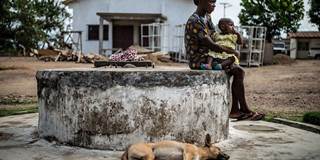The cost of weak health systems that are incapable of providing all people with the preventive services and treatments they need is steep. While building strong health systems is not easy, it is possible – and, indeed, necessary – if we are to create healthy, productive, and resilient families, communities, and economies.
BRAZZAVILLE – Three years ago, a young boy in rural Guinea fell victim to the Ebola virus. An epidemic soon took hold of West Africa. By the time it was contained, it had killed more than 11,000 people and devastated the economies of the three hardest-hit countries: Guinea, Liberia and Sierra Leone. And it provided a sobering lesson about the need for countries to build resilient health systems capable of responding swiftly and effectively to emergencies.
But strong health-care systems are critical not only in times of crisis. They are also needed to provide children with life-saving immunizations; to provide women with reproductive care, including contraception; and to provide all people with preventive services and treatments to address the growing burden of non-communicable diseases.
When people are healthy, everyone benefits. More kids attend school, and more adults are able to work, buy food, and pay school fees, providing invaluable economic contributions to their families, communities, and countries. Health crises are less likely to take hold; if they do, the existence of an effective health system with sustained links to local communities facilitates a more effective response.

BRAZZAVILLE – Three years ago, a young boy in rural Guinea fell victim to the Ebola virus. An epidemic soon took hold of West Africa. By the time it was contained, it had killed more than 11,000 people and devastated the economies of the three hardest-hit countries: Guinea, Liberia and Sierra Leone. And it provided a sobering lesson about the need for countries to build resilient health systems capable of responding swiftly and effectively to emergencies.
But strong health-care systems are critical not only in times of crisis. They are also needed to provide children with life-saving immunizations; to provide women with reproductive care, including contraception; and to provide all people with preventive services and treatments to address the growing burden of non-communicable diseases.
When people are healthy, everyone benefits. More kids attend school, and more adults are able to work, buy food, and pay school fees, providing invaluable economic contributions to their families, communities, and countries. Health crises are less likely to take hold; if they do, the existence of an effective health system with sustained links to local communities facilitates a more effective response.